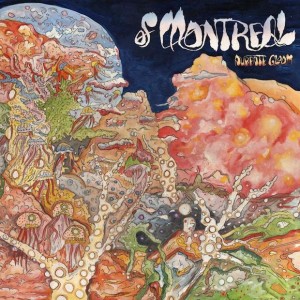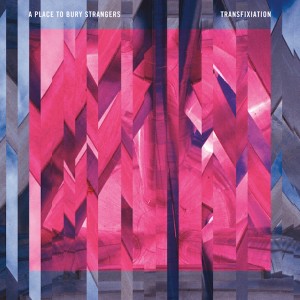Of Montreal – Aureate Gloom
If you still somehow don’t know who Kevin Barnes and Of Montreal are, after the ever-impressive and prolific thirteen studio albums that he’s put out, I’m at a loss as to what to really say to you. Of Montreal is a household name at this point, and rightly so; this project has been around for almost twenty years now making slightly off kilter psychedelic indie rock for the ages. Aureate Gloom, the thirteenth in the vast collection from this group, finds the band striking a resonant chord once again, bringing together glam/trippy rock and funky lyrics to make for an odd yet enjoyable trip into whatever world Of Montreal are living in.
It’s remarkable after all these albums that this band is still able to put out the hits; Aureate Gloom has a fair number of tracks that feel simultaneously familiar and novel. Opening up the album is “Bassem Sabry,” which launches you right into the groovy realm of the band, as springy disco guitar puts the spunk in this song, and then Barnes’ voice steps in to spiral around with immaculate diction, all of which inspire the same twisted distortion of our own perception of the music. This opening number is a great start, and when Barnes says “I believe in witches/I believe in you,” he brings in yet another element of fantasy to the mix, but often the fantasy isn’t whimsical, but grounded in scathing words sometimes chastising a group or part of life. Later, on “Virgilian Lots,” the music mirrors this grounding with the eerie synths and the gritty guitars.
There’s also the ever-so-obvious Bowie influence, as well as Barnes’ play within this trope of alien spaceman rocker, which comes into play on tracks like “Aluminum Crowd,” where Barnes’ vocals ooze Bowie. But instead of this becoming just mere imitation, Barnes’ lyrics, as well as the structure of this song, give it enough of the band’s own signature to set it apart. It sort of feels like a futuristic imagining of the past, tying together the aspects of glam rock with modern sensibilities and elements that keep it fresh.
Aureate Gloom is a fun record simply in that it has enough funkyness to make you shimmy along with Barnes and company as well as some twisted and alternate reality-esque lyrics to escape into. Of Montreal have still got it, and they want to share with you so we can all trip down this psychedelic distorted, yet comforting road.













